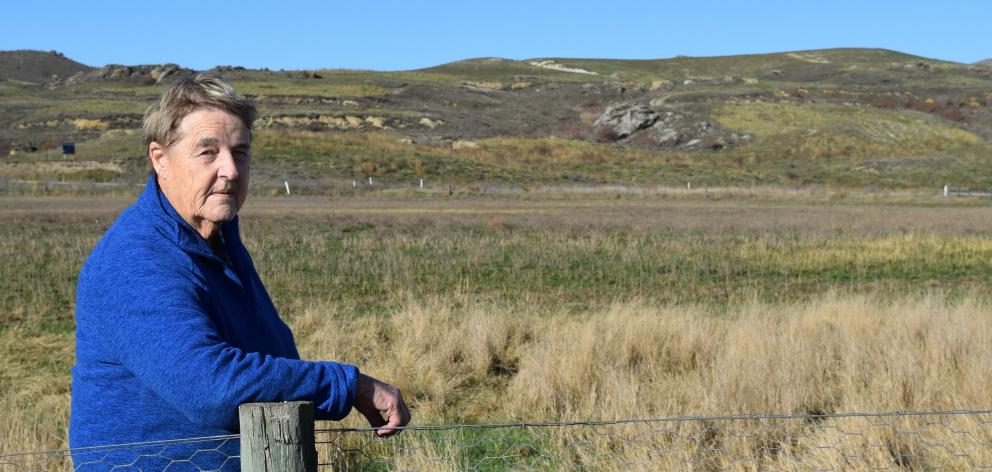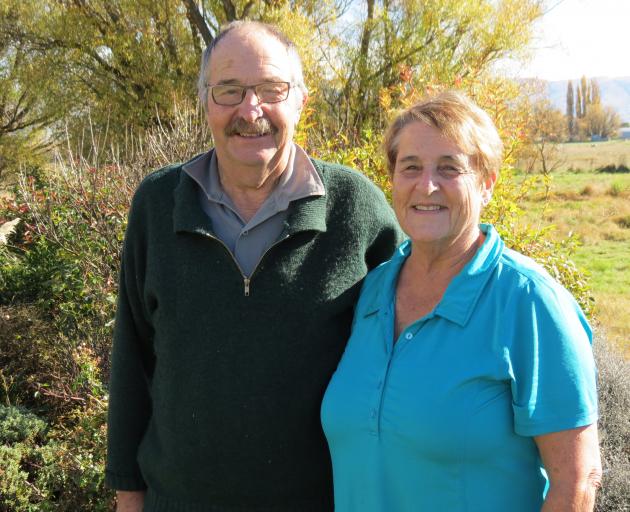
Her meat processing company has condemned 14 sheep carcasses in the past three months, due to sheep measles.
The meatworks pay nothing for a condemned carcass, which should be earning her more than $150.
"It soon mounts up. I can’t afford to keep chucking carcasses down the chute," she said.
She believes holidaymakers visiting the area were walking their dogs on her more than 1200ha flat to rolling farm Pomona in Ophir.
If a dog had not been dosed correctly, any faeces left behind could contain tapeworms eggs and had the potential to infect any of her 3000 Polwarth sheep.
"It's basically just ignorance from townie people. They don't realise their dog, even if it's only a little toy dog, might be infecting by running around in the paddock," she said.
Often toy-dog owners believed their pets posed no threat to sheep, due to their size and let them roam off-leash.
However, a small dog posed as much risk as a big dog when it came to leaving parasite eggs behind.
Ophir was a popular place for townies to stay on a long holiday weekend.
"Everyone staying in a crib here has a damn dog and they are walking up my hill," she said.
One of her condemned lambs had been grazing in a paddock by the town.
She was confident permanent Ophir residents were dosing their dogs correctly, as were anyone with dogs working on Pomona.
Her late husbands Sam’s family had been farming Pomona for more than 150 years.
She began managing Pomona after her husband died five months ago.

"It is starting to get a bit too noticeable."
She asked anyone walking their dogs on her farm, even if they had been given permission from her late husband, to contact either herself, or her stock manager Richard White, to make sure their dog was dosed correctly.
She did not hold any "vengeance against dog owners" but she felt some needed to be educated about the damage sheep measles could cause to a flock and a farm business.
"It is a simple problem to solve — they just need to be educated."
Ovis Management Ltd project manager Michelle Simpson said the non-profit organisation promotes the control of sheep measles.
The cost of sheep measles to the sector was difficult to ascertain as the condemnation and downgrade data was not captured.
"OML is working on gathering this information via our partners. There is some evidence that without control the direct cost of sheep measles is estimated to be around $3.8million per annum.
"There are no market access concerns regarding sheep measles, however, there are high consumer concerns as a product with cysts would be highly undesirable, which puts New Zealand's reputation of providing a quality product at risk. Obviously, the higher the prevalence, the greater the risk."
All dog owners that had access to raw sheep or goat meat should be dosing their dogs monthly with a product containing Praziquantel.
"Farmers’ ... have more opportunity to access this than townies . . . however, if townies are feeding their dogs raw sheep meat — they should freeze it for 10 days at -10°C first. Any dog that is going near sheep or goat-grazing areas should be dosed at least 48 hours [prior] to flush any potential tapeworms out."
Some dogs carry tapeworms and show no signs of infection, she said.
"These dogs can cause a high infection rate to pasture, leaving a farmer out of money and with a problem that can last up to 300 days, or more. The bigger issue is that this infected meat reaches the market."
OML partners with farmers and meat companies to raise awareness and encourage control of sheep measles among dog owners, as a subsidiary of the Meat Industry Association.














